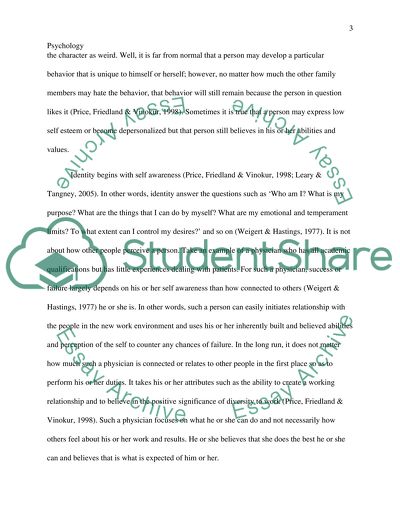Cite this document
(“Loss of Self Identity Essay Example | Topics and Well Written Essays - 1500 words”, n.d.)
Retrieved from https://studentshare.org/psychology/1494649-loss-of-self-identity
Retrieved from https://studentshare.org/psychology/1494649-loss-of-self-identity
(Loss of Self Identity Essay Example | Topics and Well Written Essays - 1500 Words)
https://studentshare.org/psychology/1494649-loss-of-self-identity.
https://studentshare.org/psychology/1494649-loss-of-self-identity.
“Loss of Self Identity Essay Example | Topics and Well Written Essays - 1500 Words”, n.d. https://studentshare.org/psychology/1494649-loss-of-self-identity.


